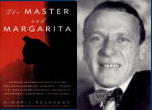
Cultural
Promotion: Promoting American-Russian
Culture to Russian-Americans
By Anya Zontova
In multicultural Los Angeles, there is often a need to attract a specific ethnic group to support an event or entertainment venue. But the rules applied when targeting mainstream Americans are quite different from those promoting to the vast population of first generation Americans who maintain their original language and culture. And these rules will certainly be different from one subculture to another.
If you think about it, people from virtually every country in the world have networks in cosmopolitan LA, their scope depending on the size of their communities. All the while, this world entertainment capital attracts individuals with a love of film and other creative pursuits -- making “ethnic” communities here much more entertainment-oriented than in other U.S. cities.
Building on my public relations experience promoting to the general American population, my personal exploration of PR to the community of 30,000 Russians residing in greater Los Angeles has revealed quite a difference in the manner they distribute information within their community.
So when I was asked by Hollywood-based The Open Fist Theatre Company to promote their adaptation of Flight penned in 1928 by the Russian playwright Mikhail Bulgakov to my present countrymen, I knew what I was up against.
The company wished to spread the word to the Russian community about their US premiere of the play, to hopefully repeat Zoo District Theatre’s success with Master and Margarita by the same author. Many still remember that play’s multiple re-runs two years ago owing to the support by avid Russian theatre lovers.
The Open Fist Theatre publicist asked me to share a list of my contacts for the Russian press. I had to explain to her that such a list wouldn’t be beneficial unless she was aware of the specifics of communication within the Russian community and was capable of implementing the task.
So what are those specifics and how different is promotion for the close-knit Russian community from regular publicity? The most notable thing about the Russian Americans is their old-fashioned reliance on word of mouth. To utilize which, I made multiple phone calls and sent many emails inviting the right networking people and newspaper editors to the play and its first night opening.
Secondly, Russians are habitually looking for information through the vast network of Russian stores serving their community -- the delis, the markets, the book and music stores, topped with pharmacies, flower, and jewelry shops, all owned by Russians. These stores, in addition to serving their direct purpose, are also where Russian-speaking people like to congregate to exchange their opinions and news and meet the neighbors, etc. So I made my rounds of these stores, talking to Russian store managers who graciously allowed me to post ad cards, with a note in Russian, in their store windows.
Coming from one of the world’s most literate culture, Russians continue to be a passionate reading community. Hence, the phenomenon of the Russian LA printed media of a dozen newspapers, nine of which are published in the city, that cater to 30,000 Russian-speaking LA residents and some 90,000 Russian-speaking Californians.
Because of the papers’ limited editorial staff, the Russian-American papers rarely send writers to an event on a media alert -- preferring to receive all materials, event listings, reviews and articles in Russian. Therefore, prior to sending a press release to select papers, I translated it into Russian, negotiated a free event listing and a review for one paper, and wrote a review for another.
Advertising costs and info placement into Russian papers are also based on relationships and negotiations. A major Russian paper editor was very understanding of the difficulty of a Hollywood theatre operating on a limited budget. She kindly offered to place a free listing and a big review with two photographs in an upcoming weekly issue, hoping the promotion would generate sufficient funds for the theatre resulting from her readers attending the play to support future ads. It worked as expected. . . and for the following issue we negotiated a considerable discount for the ad which included page design that I only needed to discuss over the phone with the editor.
Yet despite the popularity of the Russian printed word, a lot of Russian-Americans extensively use the Russian Internet, to browse and discuss Russia’s news and to check local community events. This is especially true for those who live away from traditional Russian-populated areas in the sprawled-out landscape of LA. I posted free Internet postings about Flight in both languages on several Russian LA online calendars, and weekly updated my information as the postings quickly became outdated by a number of subsequent event postings.
In addition, Los Angeles has local Russian radio and TV programming, advertising on which is not as expensive as on the US general media. There was discussion of a promotional theatre reception for the editors and free advertising over local Russian TV but the late timing prohibited any further action.
I have to add to all this that in a way, Russians identify themselves with what they call “culture” in a narrower sense than most Americans -- their literature, theatre, films, music.. It’s our daily bread, uprooted from which we feel lost.
This is why an astounding number of Russian performers and speakers make numerous, successful multiple-city tours of the United States specifically for Russian-speaking Americans, LA being a primary city on their tours.
Getting back to my project: as a result of my promotion of Flight to the Russian sensibilities, the play enjoyed a very high level of support from the Russian community.
I also consulted the theatre company on Russian language and culture, with emphasis in the pronunciation of complex Russian names. Knowing how critical and protective of their culture and language Russian theatre-goers are -- perhaps to be compared only to the French language purists - I made a point of working with the actors on that aspect. Which they appreciated, showing a sensitivity to another culture for which Americans aren’t usually given much credit.
Two months into the performances, I was truly happy to hear that Flight had been extended, and had both creative and financial success.
* * *
This season Los Angeles has an “invasion of Russian plays,” ranging from Chekhov’s classics Uncle Vanya to the contemporary Beachwood Drive written by the "LA Weekly" theatre critic Steven Morris. It parallels a wide range of cinematic adaptation from Chekhov’s The Cherry Orchard coming soon to movie theaters to Ivansxtc, a modern update of Leo Tolstoy’s Death of Ivan Ilyich set in Hollywood.
That’s all just about the Russian “pocket” in LA. But I believe for those willing to venture into the uncharted territories of the multi-ethnic population of Los Angeles, there is a new untapped venue of “cultural promotion.”
- Anya Zontova is a screenwriter who founded the Colorado International Forum and The Russian-American Club and published an intercultural magazine, The Compass Rose. If you have any questions or comments about this article, you can contact Anya at: http://home.earthlink.net/~annazontova.
-Read Anya Zontova's
"Million Dollar Hotel" movie review in
Bludogbiz's
Movie Reviews by scrolling to"Million Dollar Hotel"in
the left frame.
Copyright ©2002 Anya Zontova. All Rights Reserved.
![]()

The Master & Margarita
![]()

Visit
the Web site for
The 110th Anniversary
of Mikhail Bulgakov, by
clicking HERE!!!
__________

Flight (1928)
Mikhail Bulgakov
__________
KMNB
Media
the only Russian
Speaking
On-Line
Services in the USA!!
click here or
go to
its official site @:
www.kmnb.com

Visit
California Arts
Council to learn more
about getting grants!
Click the CAC icon
above, or go to:
www.cac.ca.gov
![]()
arts & disability
Click
the icon above
to read more about
CAC & disability rights!
![]()
Click
the icon above &
sign the CAC Education
Petition to bring the
Arts to All California
Students

BDbiz E-Mail!!
Visit
Bludogbiz's
permanent site @
www.bludogbiz. com!!
READ
THESE ARTICLES:
Minority
Report 2002
Honoring
the Japanese-
American Soldiers
of WWII
https://bludogbiz.tripod.com/
Web Design by Patsy Sakuma
Copyright
© 2002 Bludogbiz. All Rights Reserved.